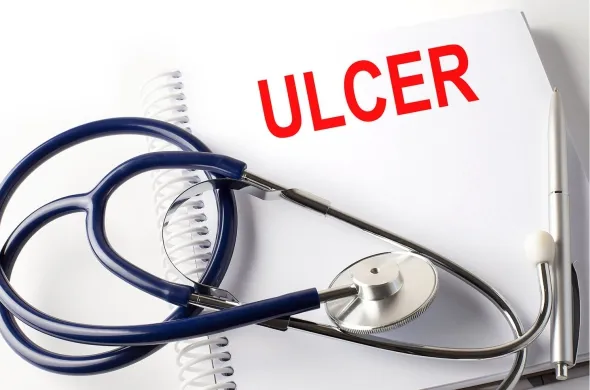That burning sensation in your stomach after meals. The nagging pain that wakes you up at night. For millions of people worldwide, these aren’t just occasional digestive complaints, they’re signs of peptic ulcers. The good news? Ulcers Explained doesn’t have to mean complicated medical jargon. With proper understanding and care, most ulcers can be effectively treated and even prevented.
In this article, we’ll walk through what ulcers really are, what they feel like, and, most importantly, how you can find relief and protect your digestive health for the long term.
What Exactly Are Ulcers?
Ulcers Explained simply: they’re open sores that develop in the lining of your stomach, small intestine, or esophagus. Think of them like small, painful cuts inside your digestive tract, constantly exposed to stomach acid, which slows healing and intensifies discomfort.
The two most common types are:
- Gastric ulcers: located in the stomach
- Duodenal ulcers: found in the upper part of the small intestine
Contrary to past beliefs, ulcers aren’t caused by stress or spicy food alone (though these can aggravate them). The two primary causes are:
- H. pylori bacteria: A common bacterial infection that weakens the protective lining of the stomach.
- Long-term use of NSAIDs: Frequent use of pain relievers like ibuprofen or aspirin can irritate or inflame the stomach lining.
How to Recognize Ulcer Symptoms
Ulcer symptoms can vary from mild to severe. Common signs include:
- A burning or gnawing pain in the abdomen, often between meals or at night
- Bloating or feeling overly full
- Nausea or vomiting
- Heartburn or acid reflux
- Dark, tarry stools (which may indicate bleeding)
If you experience any of these symptoms consistently, it’s important to see a doctor. Ignoring them could lead to complications like internal bleeding or perforation.
How Ulcers Are Treated: A Multifaceted Approach
Thankfully, ulcers are highly treatable. A combination of medical treatments and lifestyle adjustments can help most people heal completely.
Medical treatments may include:
- Antibiotics – if an H. pylori infection is detected
- Acid-reducing medications – such as PPIs (proton pump inhibitors) or H2 blockers
- Antacids – for short-term relief
- Medications to protect the lining of the stomach or intestine
Your doctor will tailor your treatment based on the cause and severity of your ulcer.
Lifestyle Adjustments That Make a Difference
While medication does the heavy lifting in healing ulcers, certain day-to-day choices can significantly ease symptoms and support recovery:
- Avoid trigger foods – Spicy dishes, caffeine, alcohol, and acidic foods (like tomatoes or citrus) can worsen pain.
- Eat smaller, more frequent meals – This helps reduce acid production and minimizes irritation.
- Quit smoking – Smoking delays healing and increases the risk of ulcers returning.
- Manage stress – Techniques like deep breathing, meditation, or light exercise can help lower stress, which is known to exacerbate symptoms.
Can Ulcers Be Prevented?
Yes—especially once you know the common triggers. To lower your risk:
- Use pain relievers wisely – If you regularly take NSAIDs, ask your doctor about alternatives or protective medications.
- Practice good hygiene – Wash your hands regularly to reduce the risk of H. pylori infection.
- Limit alcohol – Excessive drinking can irritate your stomach lining.
- Eat a balanced diet – Include fiber-rich foods, probiotics (like yogurt), and antioxidant-filled fruits and vegetables.
When to See a Doctor
Don’t try to self-diagnose or ignore persistent symptoms. Seek medical attention if you:
- Have sharp, sudden stomach pain
- Notice blood in your vomit or stool
- Feel dizzy or faint
- Experience unexplained weight loss
Early diagnosis and treatment can prevent complications and put you on the path to recovery sooner.
You Don’t Have to “Just Live With It”
So many people dismiss stomach pain as something they must endure. But Ulcers Explained should bring hope: this is a manageable condition. By understanding what’s happening inside your body and partnering with your healthcare provider, you can reduce pain, heal completely, and return to enjoying food and life without worry.
Be kind to your stomach, it’s working hard for you.
If you suspect you have an ulcer, please consult a healthcare professional. This information is educational and not a substitute for personalized medical advice.
